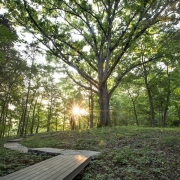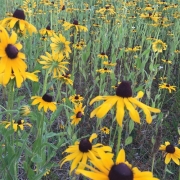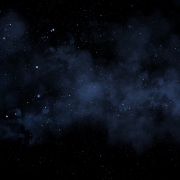Resiliency in Aging: What is it and 5 Things You Better Know as You Age (And Yes, You Are Aging) | Healthy Aging Series: Part 11
To understand the meaning of a word, sometimes it helps to know what it’s not. If you’re not resilient, it’s likely that you’re vulnerable. That’s a word we’ve heard a lot during the Covid Pandemic.
The CDC prioritized vulnerable people as the first to get Covid vaccinations. These people included older adults (65+ years old), individuals with compromised immune systems (usually the results of chemotherapy), and people who suffer from Diabetes, Hypertension, heart disease, and obesity, just to name a few.
Genetics and bad luck have contributed to some people being more vulnerable. A car accident can change a person’s life and affect their resiliency. That happened to my very good friend, Jeff. He had a car accident in his early twenties. Years later, as he approached his sixties, he could barely walk and was in constant, severe pain. Some people can go from resilient to vulnerable after exposure to something in their environment like toxic chemicals, or a virus, or a traumatic loss. Some folk simple inherited genes that have made them more vulnerable. People born with autoimmune disorders struggle with vulnerabilities throughout their life.
For many, being vulnerable is due to no fault of their own!
There are, however, behaviors and lifestyle choices that people practice that eventually contribute to their lack of resiliency. Some choices include smoking, excessive drinking, isolation, sedentary lifestyle, poor diet, poor sleep hygiene, self-induced stress or lack of calming strategies, and in general, poor self-care strategies. I could go on, but you get the point.
We spend our whole life practicing behaviors and making lifestyle choices that either lead to or prevent our resiliency.
What is Resiliency?
Resiliency is the ability to recover or bounce back from difficulties. It means having a mental and physical toughness. Resiliency acts as a buffer between you and the difficulties that you are going to face in life. It’s very important especially as you age and approach old age.
I want to share five things that you need to know now about resiliency and aging:
1. Start Now!
Start practicing behaviors and making lifestyle choices now that will lead to a more resilient life. I started this many years ago. I remember reading a book that my father had given me. It was “Dr. Bob Arnot’s Guide to Turning Back the Clock.” He challenged me to develop an “Athlete” mindset regardless of my age or activity level. I was lounging in my bed on a Sunday morning. Reading Arnot’s book. I was probably 25 pounds overweight. Inactive. Poor diet. I made the decision at that moment to change my behaviors and make good lifestyle choices. I became a runner, a cyclist, a hiker, and backpacker. I’ve kept reading. Years later, I became a Certified Personal Trainer and have added several supporting certifications.
2. Make a Plan!
You need to make a plan and set goals that will affect your behaviors and lifestyle choices. Be purposeful and intentional. Schedule yourself in the gym and set goals for resistance training. I choose to set hourly and minute goal instead of volume goals. I try to spend 2-3 hours a week in my gym, stretching and lifting. I measure my cardio by hours and not miles (4-6 hours hiking or walking).
Set a goal for the number of books that you want to read or set a goal to read so many hours per week. Buy books and put them on your bookshelf. It can be your reading que. Set a goal to listen to a certain number (or hours) of podcasts that appeal to you.
I schedule time off each year. It’s amazing how many people never schedule a vacation. I just finished a trip to Utah for a backpacking trip. It was scheduled several months in advance.
The thing is, resiliency doesn’t just happen. You must be intentional about becoming resilient. For some people it intuitive, but not for me. I purposely and intentionally practice in behaviors and make lifestyle choices that promote my resiliency.
3. Practice Addition and Subtraction!
Fill your life(addition) with people, places, things, and activities (behaviors and lifestyle choices) that will promote resiliency, and then get rid of (subtraction) the things that don’t. Toxins come in all shapes and forms. The same is true of resiliency promoting agents. I’ve had to leave people, foods, activities, and organizations that were not good for me. I’ve held onto those agents that were beneficial to me as if they were life preservers.
4. Be Hard on Yourself and Forgive Yourself.
Ignore your inner demons that tell you to quit working on yourself, and then forgive yourself for not being perfect.
Years ago, I was sharing my workout regimen with a good friend. I was attending the gym 3-4 times a week, sometimes 5-6 times, sometimes for up to 2 hours each time. He responded with a caution that I was becoming addicted to working out. I responded, not so politely, by asking him to keep his opinion to himself and that I already had to deal with my own inner demons that tempted me to stay in bed and overeat because, after all, hadn’t I just worked out, and didn’t I deserve to eat more.
We need to be hard on ourselves and push ourselves to practice behaviors and make good lifestyle choices.
But we also need to allow ourselves to be human and enjoy life. The truth is that we do only live once. Have a sweet. Take a morning or even a week off and recover. Waste some time doing nothing purposeful, or piddle, as I call it. A life full of regrets never promotes resiliency.
5. Enjoy the Journey!
Know this: A lifestyle that promotes resiliency is a coveted lifestyle. Aging doesn’t have to mean decline and deterioration. It can be a playful exploration, where you write your script. The lifestyle that you craft by your choices will become an exciting journey that leads to resiliency. The things that you do to promote resiliency provide a wonderful menu of activities, friends, foods, places, and experiences that will enhance your life. So, enjoy your journey.
I am going to spend several upcoming blogs providing a road map for that exciting journey.
This is part eight in the Healthy Aging Series, written by Mark Neese, LCSW, BCBA. To see more entries in this series, click here.

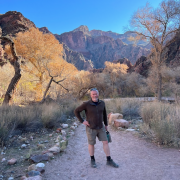
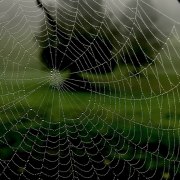

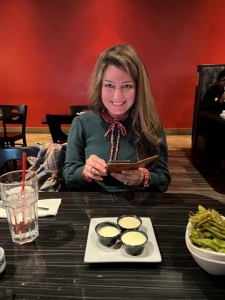 Rommie Oshrieh is Co-Founder/Owner of Sage Support Services and True North Counseling.
Rommie Oshrieh is Co-Founder/Owner of Sage Support Services and True North Counseling. 

